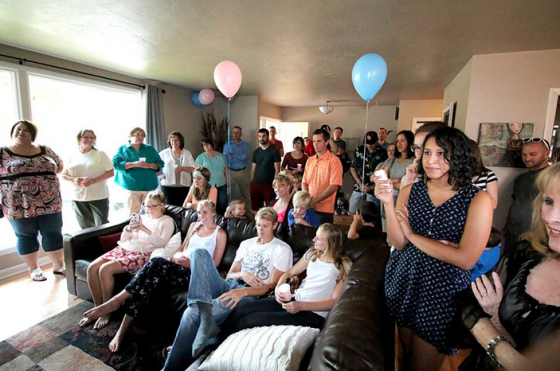Two years ago I moved my wife Rose to my hometown of Salem, Oregon, taking her away from a city we loved, Portland, Oregon. It’s hard to explain why we did this other than by saying God pushed us where we didn’t want to go. And when God speaks, you follow.

I imagined the move to be a 3-5 year sort of thing. A chance to gain some church ministry experience in some different areas than I had previously. But in the process of going to this place we didn’t want to go, God began to change our hearts and our perspective.
Throughout this calendar year I’ve had the subject of “theology of place” on my mind. Theology meaning study of God. A theology of place meaning what does a study of God indicate about the place I put my life?
In preparing to speak to my church on the subject, three stories in the Bible came to mind, illustrating different aspects of a theology of place.
Esther, through circumstances only the hand of God could orchestrate, became queen despite her Hebrew brothers and sisters finding themselves in exile. Her position gave her a voice toward the king, but it was also a risk because the king could just as easily dispose of her. God, through the influence of Mordecai, shifted Esther’s perspective of protecting her life, to instead fight for the Nation of Israel.
God’s perspective on place is not self-focused, but others focused.
Jesus, in planting himself next to the well of Jacob in the middle of a Samaritan town, is fixing to meet up with someone who wants nothing to do with him. Sure enough the Son of God lovingly confronts a sinful Samaritan woman as she gathers her water at a time when no one else will bother her. This is clearly not a happenstance interaction.
God’s perspective on place is specific. Specific people. Specific place.
Philip is generating some success speaking in Samaritan towns following the persecution that scattered the church. God’s spirit speaks to him, telling him to walk on a road from Jerusalem to Gaza. No immediate purpose or goal is given. In the middle of his walk he encounters a man who is reading in the book of Isaiah. God’s Spirit tells Philip to interact with that man. Not long after Philip baptizes the man in the name of Jesus. Philip is in the moment enough to hear the still small voice of God instead of focusing on the task at hand of walking to the end of the road.
God’s perspective on place is in the moment, not in the dreams of far off goals.

In my younger years I didn’t understand why people would “settle down.” My desire for parish pornography led me to believe God had something much more “prosperous” in mind for my family and my ministry. A month ago Rose and I bought and moved into our first home. We are consciously and purposely settling. These three Bible stories I referenced highlight why.
A biblical theology of place has me pursuing life in a specific place with specific people, desiring to know them and serve them, all while trying to focus on the current step of life instead of one much further down the road.
Salem, we are calling you home for the foreseeable future and we can’t wait to see what God does as we link arms with you.
Come on over!